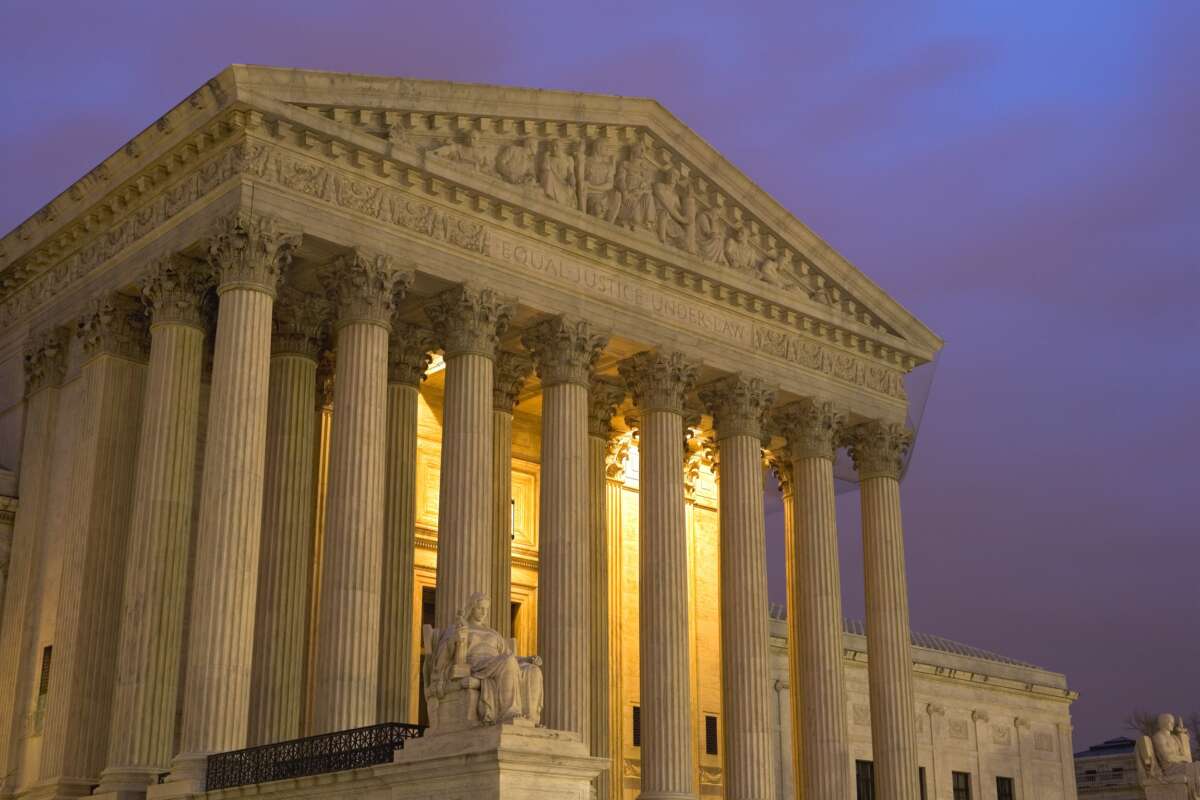Reproductive rights organization Planned Parenthood has issued a press release calling for major reforms to the federal judiciary — including the U.S. Supreme Court — almost a year after the Court upended federal abortion rights established in Roe v. Wade.
The organization specifically called for an expansion of the number of Court justices and an end to lifetime appointments, as well as strict and enforceable ethical standards for justices.
Planned Parenthood also called for an end to single-judge divisions — federal districts in the U.S. court system that are presided over by a single judge — in order to prevent special interest groups (particularly those opposed to reproductive and democratic rights) from “court-shopping” for judges that are amenable to their causes. A recent instance of court-shopping resulted in a district judge in Texas issuing an order to ban abortion medication throughout the country. (The Supreme Court has since placed a temporary hold on that order while a conservative appellate court considers its merits.)
“The courts have been used as a vehicle to advance a dangerous agenda against abortion rights, voting rights, LGBTQ+ rights, and so much more,” Planned Parenthood president and CEO Alexis McGill Johnson said in the press release.
McGill Johnson appeared on MSNBC on Sunday to discuss the organization’s demands for reform. In a conversation with former White House Press Secretary Jen Psaki, who hosts a weekly program for the network, McGill Johnson reiterated the need for changes to the Supreme Court and the judiciary overall.
“We think it’s incredibly important now that we need to see expanded courts, from lower courts all the way up to the Supreme Court,” she said. “We need to see term limits. We need to see ethical reforms.”
McGill Johnson emphasized that the issues with the Supreme Court are structural and cannot be solved by simply replacing justices.
“It would be one thing to call for, you know, a justice to step down for whatever reason, but the reality is, the way in which the system has been captured requires us to engage in structural reform in a different way,” she said.
Most Americans are open to the reforms that McGill Johnson and Planned Parenthood are calling for. A Reuters/Ipsos poll from 2021 found that although Americans are split on the issue of expanding the Supreme Court, nearly two-thirds of voters (63 percent) back the idea of instituting tenure limits for justices.
Meanwhile, progressives and human rights advocates have pointed out that the institution of the Supreme Court is inherently undemocratic, regardless of any potential reforms. A majority of the justices on the current bench were selected by presidents who lost the popular vote in their initial runs for the White House, and the Senate, which approves nominations put forward by presidents, is antithetical to creating a Court that is responsive to the needs and demands of a democracy.
“The 52 Republican senators who voted to confirm Justice Amy Coney Barrett to the high court in 2020 represented 13.5 million fewer people than the senators who rejected her,” Jezebel staff writer Kylie Cheung noted. “Not exactly a sign of a thriving democracy!”
The Court is likely to remain in the conservative bloc’s control for decades to come, despite the fact that Americans have, in general, become more progressive on myriad issues in recent years. A recent multi-university study of the Court found that, barring any institutional reforms, conservative justices will likely run the Court until at least the year 2065, endangering a number of civil rights protections that were established in the late 20th century.
Join us in defending the truth before it’s too late
The future of independent journalism is uncertain, and the consequences of losing it are too grave to ignore. To ensure Truthout remains safe, strong, and free, we need to raise $27,000 in the next 24 hours. Every dollar raised goes directly toward the costs of producing news you can trust.
Please give what you can — because by supporting us with a tax-deductible donation, you’re not just preserving a source of news, you’re helping to safeguard what’s left of our democracy.
